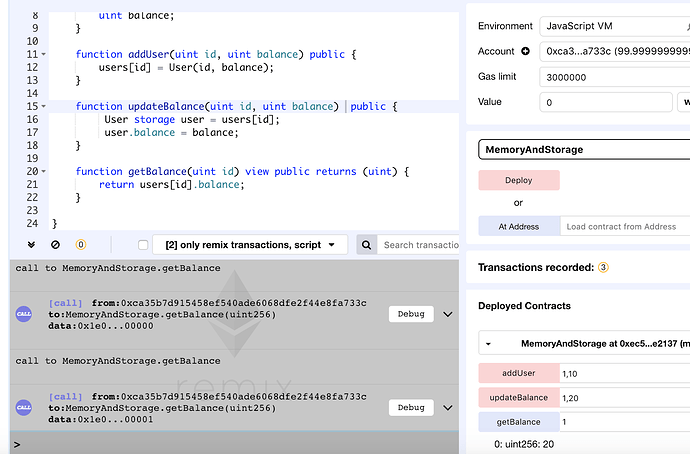the topic didn’t exist yet, so I created it
pragma solidity 0.5.1;
contract MemoryAndStorage {
mapping(uint => User) users;
struct User{
uint id;
uint balance;
}
function addUser(uint id, uint balance) public {
users[id] = User(id, balance);
}
function updateBalance(uint id, uint balance) public {
User storage user = users[id];
user.balance = balance;
}
function getBalance(uint id) view public returns (uint) {
return users[id].balance;
}
}


